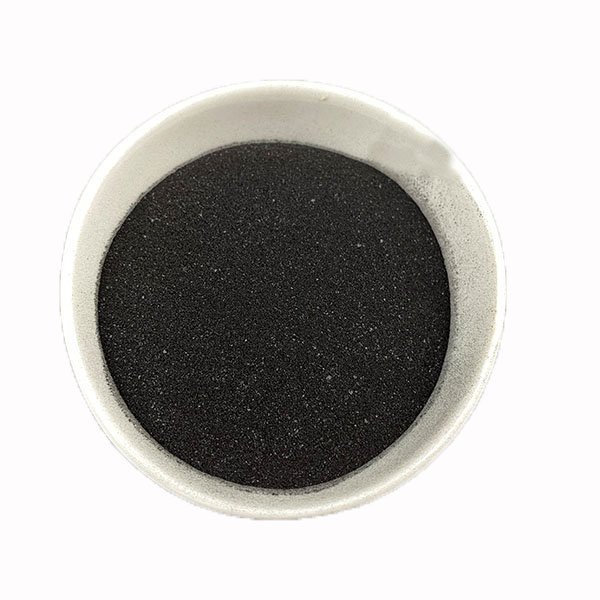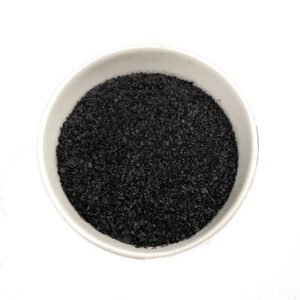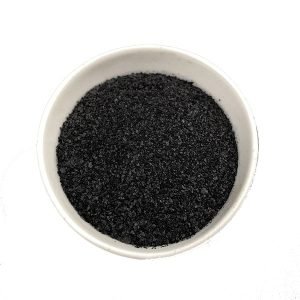Humic acid is a type of organic substance produced and accumulated by animal and plant remains (mainly plant remains) through microbial decomposition and transformation, as well as a series of geochemical processes.
The application of humic acid can increase the content of sugar, starch, protein, and vitamin C in fruits, and reduce the content of nitrate and nitrite in vegetables and fruits, thereby improving fruit quality.
The effects of humic acid:
1. Improve the utilization rate of nitrogen fertilizer.
Nitrogen is an essential fertilizer for plant growth. The main components are urea and carbon amine. When urea and carbon amine enter the soil, they are quickly lost with air and water. And the nitrogen nutrients that crops can absorb are only 30%. Acidic functional groups, such as aromatic nuclei, hydroxyl groups, and carboxyl groups in humic acid, can react with nitrogen elements to form stable new ion groups. These ions exist in the soil for a long time and gradually decompose to release nitrogen elements. It absorbs slowly.
2. Humic acid can improve the utilization rate of phosphate fertilizer.
After apply effective phosphorus fertilizer, the metal ions in the soil will fix the P and convert the available phosphorus into late-acting phosphorus or ineffective phosphorus. In humic acid, acidic functional groups, such as hydroxyl, carboxyl and other acidic functional groups, react with phosphorus to make it into soluble phosphorus, improve the activity of phosphorus, and plant can easily absorb. According to statistics, after adding humic acid, the fertilizer efficiency of phosphate fertilizer increase is 5~10%.
3. It has the effect of increasing potassium fertilizer.
The functional group can also absorb the stored potassium ions, which can not only prevent the loss of potassium ions with water, but also prevent the fixation of potassium in soil viscous soil. And can increase the utilization rate of potassium fertilizer by about 5%.
4. Humic acid has the effect of water and fertilizer retention.
With huge absorption, substitution and buffering capacity, it can significantly improve the physical and chemical properties of the soil, and significantly improve the soil’s ability to retain fertilizer and water. This is why soil with high organic matter content has a large water storage capacity and strong fertility retention.
Humic acid organic colloids combine with calcium ions in the soil to form a flocculent gel. That increases the water-stable aggregate structure in the soil, coordinates the water, fertilizer, air and heat conditions of the soil, and increases water and fertilizer retention. Especially for improved it works well in thin soils such as sticky or sandy soil.
In the soil, humic acid combines with mineral colloids to form soil inorganic-organic composite colloids. And to form a buffer system, which can adjust and stabilize the pH value of the soil and act as a soil conditioner.





